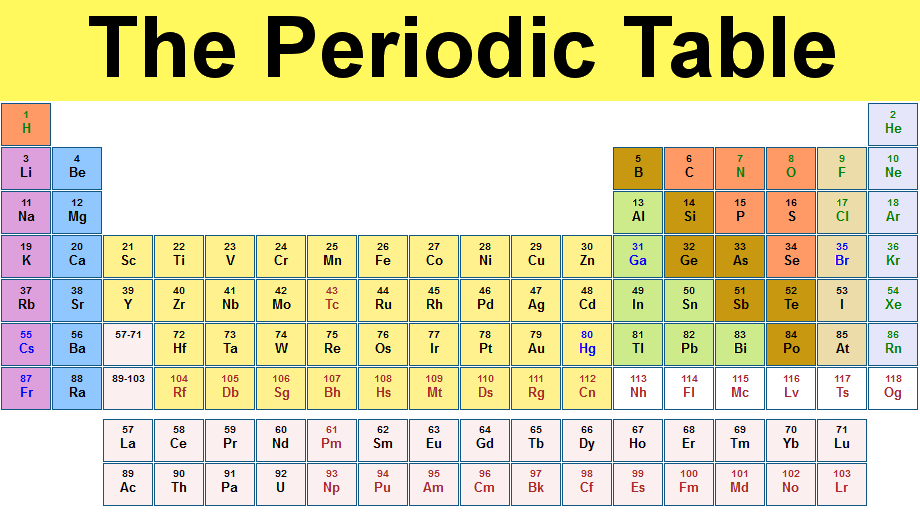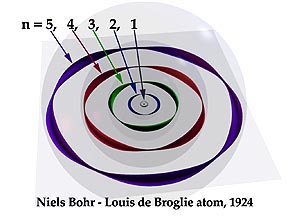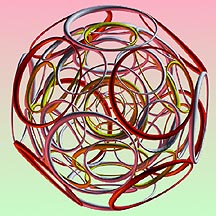#!/usr/bin/env python
# coding: utf-8
# Python for STEM Teachers
[Oregon Curriculum Network](http://4dsolutions.net/ocn/)
#
# # Atoms R Us
#
# 
#
# In[1]:
import json
series_types = ["Don't Know", "Other nonmetal", "Alkali metal",
"Alkaline earth metal", "Nobel gas", "Metalloid",
"Halogen", "Transition metal", "Post-transition metal",
"Lanthanoid", "Actinoid"]
class Element:
fields = "protons symbol long_name mass series"
repstr = ("Atom(protons={protons}, symbol='{symbol}', "
"long_name='{long_name}', "
"mass={mass}, series='{series}')")
def __init__(self, protons: int, symbol: str,
long_name: str, mass: float, series: str):
# build self.__dict__
self.protons = protons
self.symbol = symbol
self.long_name = long_name
self.__dict__['mass'] = mass # same idea
self.series = series
def __getitem__(self, idx): # simulates collection.namedtuple behavior
return self.__dict__[self.fields[idx]]
def __repr__(self):
return self.repstr.format(**self.__dict__)
Atom = Element # synonyms
lithium = Atom(3, "Li", "Lithium", 6.941, "Alkali metal")
print(lithium) # __str__, then __repr__
print(lithium.__dict__)
print(lithium.protons) # print(lithium.__getattr__('protons'))
# In[2]:
import unittest
class Test_Element(unittest.TestCase):
def test_instance(self):
lithium = Atom(3, "Li", "Lithium", 6.941, "Alkali metal")
self.assertEqual(lithium.protons, 3, "Houston, we have a problem")
a = Test_Element() # the test suite
suite = unittest.TestLoader().loadTestsFromModule(a) # fancy boilerplate
unittest.TextTestRunner().run(suite) # run the test suite
# In[5]:
class ElementEncoder(json.JSONEncoder):
"""
See: https://docs.python.org/3.5/library/json.html
"""
def default(self, obj):
if isinstance(obj, Element): # how to encode an Element
return [obj.protons, obj.symbol, obj.long_name, obj.mass, obj.series]
return json.JSONEncoder.default(self, obj) # just do your usual
# Element = namedtuple("Atom", "protons abbrev long_name mass")
def load_elements():
global all_elements # <--- will be visible to entire module
try:
the_file = "periodic_table.json"
f = open(the_file, "r") # <--- open the_file instead
except IOError:
print("Sorry, no such file!")
else:
the_dict = json.load(f)
f.close()
all_elements = {}
for symbol, data in the_dict.items():
all_elements[symbol] = Atom(*data) # "explode" data into 5 inputs
print("File:", the_file, 'loaded.')
load_elements() # actually do it
# 
# graphic by Kenneth Snelson
# In[6]:
def print_periodic_table(sortby=1):
"""
sort all_elements by number of protons, ordered_elements local only
What about series?
Sort Order:
1. protons
2. symbol
3. series
"""
print("Selected:", sortby)
if sortby == 1:
ordered_elements = sorted(all_elements.values(), key = lambda k: k.protons)
elif sortby == 2:
ordered_elements = sorted(all_elements.values(), key = lambda k: k.symbol)
elif sortby == 3:
ordered_elements = sorted(all_elements.values(), key = lambda k: k.series)
print("PERIODIC TABLE OF THE ELEMENTS")
print("-" * 70)
print("Symbol |Long Name |Protons |Mass |Series " )
print("-" * 70)
for the_atom in ordered_elements:
print("{:6} | {:20} | {:6} | {:5.2f} | {:15}".format(the_atom.symbol,
the_atom.long_name,
the_atom.protons,
the_atom.mass,
the_atom.series))
print_periodic_table() # do it for real
# 
# by Kenneth Snelson